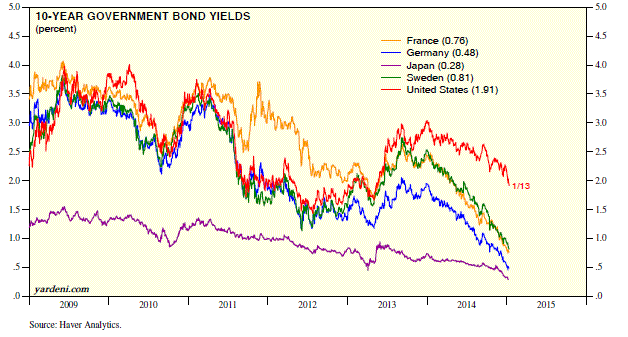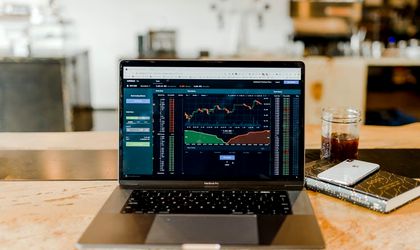
If you are an aspiring investor, you may be interested in finding out whether someone has stocks. This is important because it allows you to make more informed decisions when investing. The best way to do this is by learning about the process of buying and selling stocks, as well as what to expect when doing so.
Stock Ownership Search
Usually, if you purchase stock from a corporation, they will send you a physical document that contains the number and details of the shares you own. These certificates are important documents and you shouldn't lose them.
How to prove that you own stock
The easiest way to prove your stock ownership is to go through the paperwork you signed when you purchased the stock and verify that it matches up with what you have in your records. This is a challenging task for most people, but necessary to protect financial interests.

Try using the company's website to verify if your information matches. This will allow you to prove you own the shares and that you have the voting rights.
Find a company to print copies of your certificates. You can choose from a variety of templates and blanks, and the company will take care of all legal requirements.
How to find the transfer agent for a stock
The certificate of ownership is essential because it proves that you are the owner of the stock you purchased. This is a useful tool for collecting dividends that you may be entitled to. If you've lost your certificate, get it replaced immediately.
The agent responsible for the transfer of an equity is in charge of maintaining the shareholder's records, transferring the ownership to the new owner and ensuring dividends are received. You should choose a registered transfer agent with a good reputation. You should also ask them about their experience in the field.

You need to know the current and historical stockholders of a business to be able to form a full picture. You will be able to gain a better understanding of the stock market as well as the overall health and performance of a business.
BamSec provides a search feature that lets you view a list with current stockholders. The tool also allows you to filter by concentration (top 10), location, type of investors and date range.
If you are looking for a list of historic owners, the same tool offers a similar feature called "Shareholder History Report." The report gives you a full list of owners as well as their historic holdings, from 1997 until today.
FAQ
Stock marketable security or not?
Stock is an investment vehicle which allows you to purchase company shares to make your money. You do this through a brokerage company that purchases stocks and bonds.
You can also invest in mutual funds or individual stocks. In fact, there are more than 50,000 mutual fund options out there.
The key difference between these methods is how you make money. Direct investments are income earned from dividends paid to the company. Stock trading involves actually trading stocks and bonds in order for profits.
In both cases you're buying ownership of a corporation or business. However, when you own a piece of a company, you become a shareholder and receive dividends based on how much the company earns.
Stock trading is a way to make money. You can either short-sell (borrow) stock shares and hope the price drops below what you paid, or you could hold the shares and hope the value rises.
There are three types of stock trades: call, put, and exchange-traded funds. Call and Put options give you the ability to buy or trade a particular stock at a given price and within a defined time. ETFs, also known as mutual funds or exchange-traded funds, track a range of stocks instead of individual securities.
Stock trading is a popular way for investors to be involved in the growth of their company without having daily operations.
Stock trading can be very rewarding, even though it requires a lot planning and careful study. If you decide to pursue this career path, you'll need to learn the basics of finance, accounting, and economics.
What is a Reit?
A real estate investment trust (REIT) is an entity that owns income-producing properties such as apartment buildings, shopping centers, office buildings, hotels, industrial parks, etc. They are publicly traded companies that pay dividends to shareholders instead of paying corporate taxes.
They are very similar to corporations, except they own property and not produce goods.
How can I select a reliable investment company?
Look for one that charges competitive fees, offers high-quality management and has a diverse portfolio. The type of security in your account will determine the fees. Some companies charge nothing for holding cash while others charge an annual flat fee, regardless of the amount you deposit. Others charge a percentage on your total assets.
You also need to know their performance history. Poor track records may mean that a company is not suitable for you. You want to avoid companies with low net asset value (NAV) and those with very volatile NAVs.
You should also check their investment philosophy. Investment companies should be prepared to take on more risk in order to earn higher returns. If they are not willing to take on risks, they might not be able achieve your expectations.
Statistics
- US resident who opens a new IBKR Pro individual or joint account receives a 0.25% rate reduction on margin loans. (nerdwallet.com)
- "If all of your money's in one stock, you could potentially lose 50% of it overnight," Moore says. (nerdwallet.com)
- Ratchet down that 10% if you don't yet have a healthy emergency fund and 10% to 15% of your income funneled into a retirement savings account. (nerdwallet.com)
- Individuals with very limited financial experience are either terrified by horror stories of average investors losing 50% of their portfolio value or are beguiled by "hot tips" that bear the promise of huge rewards but seldom pay off. (investopedia.com)
External Links
How To
How to make your trading plan
A trading plan helps you manage your money effectively. This allows you to see how much money you have and what your goals might be.
Before you create a trading program, consider your goals. You might want to save money, earn income, or spend less. If you're saving money, you might decide to invest in shares or bonds. You could save some interest or purchase a home if you are earning it. And if you want to spend less, perhaps you'd like to go on holiday or buy yourself something nice.
Once you know what you want to do with your money, you'll need to work out how much you have to start with. It depends on where you live, and whether or not you have debts. Also, consider how much money you make each month (or week). Your income is the amount you earn after taxes.
Next, you need to make sure that you have enough money to cover your expenses. These include bills, rent, food, travel costs, and anything else you need to pay. Your monthly spending includes all these items.
You'll also need to determine how much you still have at the end the month. That's your net disposable income.
You're now able to determine how to spend your money the most efficiently.
You can download one from the internet to get started with a basic trading plan. Or ask someone who knows about investing to show you how to build one.
Here's an example: This simple spreadsheet can be opened in Microsoft Excel.
This will show all of your income and expenses so far. It also includes your current bank balance as well as your investment portfolio.
Here's another example. This was designed by a financial professional.
This calculator will show you how to determine the risk you are willing to take.
Do not try to predict the future. Instead, focus on using your money wisely today.